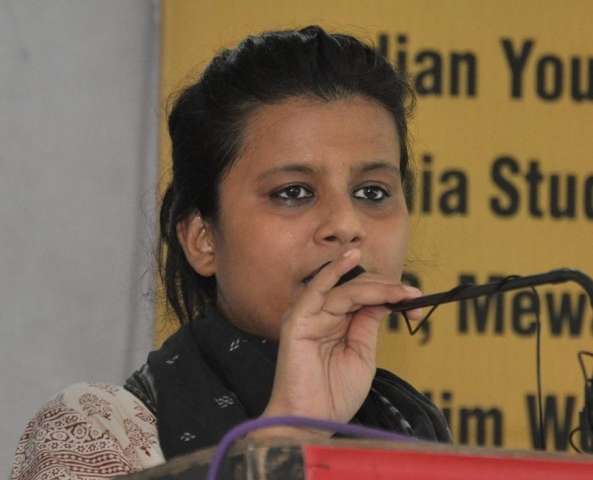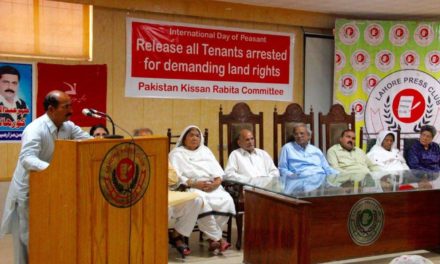Is saal danga bahut hua (tha),
bahut hui hai khoon ki baarish,
agale saal acchi hogi fasal matdaan ki ….
(This time the riot was massive, horrific.
It rained tears and blood.
Next year there will be a good harvest.
A harvest of votes.)
Gorakh Pandey
In September 2013, riots were engineered in the small town of Muzaffarnagar in the Jat-dominated area in the state of Uttar Pradesh.
These horrific riots proved a prelude to the yearlong election campaign for 2014 Lok Sabha elections, which led to the rout of the Congress party. For the first time in the history of independent India, the Congress party is not even an opposition party.
In the Muzaffarnagar riots, a number of Muslims were killed and thousands had to flee from native villages and were forced to live in relief camps. Instead of intervening, the Congress party looked the other way, fearing that touching the subject and bringing the perpetuators to justice could prove costly in the elections. Yes, the party paid heavily for its inaction. The fact-finding reports published by civil society groups concluded that many leaders of the right-wing Bhartiya Janta Party (BJP) were directly involved in instigating these riots against the Muslim minority.
This led to the complete polarisation of Western Uttar Pradesh along communal lines. Not a single one of the perpetrators was arrested or punished. In fact, many were later openly facilitated by the BJP’s central leadership.
If that was not enough, the BJP’s elections chief in Uttar Pradesh and General Secretary, Amit Shah, said in statements before the Jat community that the 2014 elections were an opportunity to take “revenge for the insult” while alluding to violence in Muzaffarnagar.
With the media overawed by the “Modinomics” and presenting Shah’s campaign as part of the development project of the BJP, we could clearly see what was happening.
Under the pretext of development, communal politics was played out aggressively. The hate speeches by the likes of Giriraj Singh and Praveen Togadia and continuous efforts to polarise the voters was clearly visible on the ground. We can clearly see it in the election results. BJP’s all India tally rose to 282 seats, compared to 112 in 2009.
The biggest indicator of this trend is the loss of the chief of the Rashtriya Lok Dal Party and Jat leader Ajit Singh in his old constituency of Baghpat in western Uttar Pradesh, a seat he had won consistently since 1999 and lost only once before. He was defeated by BJP candidate Satyal Singh, who had joined the party just few months ago after resigning from the post of Police Commissioner of Mumbai.
Three constituencies of Western Uttar Pradesh which were the worst affected by the riots – Muzaffarnagar, Kairana and Bijnor – were swept away by the BJP. This is the first time in the history of elections in Independent India that there is not even a single Muslim Member of Parliament from the state of Uttar Pradesh. There will be only 22 Muslim candidates in the 2014 Lok Sabha – the lowest number ever.
Reaping benefits from the riots and demonising the minority is not new for the BJP leadership. Narenda Modi, their prime ministerial candidate, was chief minister of Gujarat in 2002 when about 2,000 Muslims were killed and thousands more were displaced in the riots. So far, he has not been held accountable or responsible for the one-sided attack on the minorities in his state. In fact, he took advantage of the situation by dissolving the Gujarat Assembly one year earlier than planned and went for elections. Needless to say, he won the election by huge margins. This was the start of his rise to power and appointment as prime minister.
Gujarat similarly witnessed number of fake encounters during the tenures of Modi and of Shah. Shah is accused in the encounter cases and currently is out on bail. Today after successfully taking the tally of the party in Uttar Pradesh from 10 to 71, he is seen as a right-hand man of Modi and number two in the party.
In 2013, the news websites Cobrapost and Gulail reported that Shah, as Minister of State for Home Affairs in Gujarat, used all State machinery to do illegal surveillance of a young girl in Gujarat in 2009 on the instructions of his Saheb (Master).
We are witnessing history, since this is the first time in 30 years that no party has got a majority on its own (272 seats). The last time was in 1984, when Congress won with 404 seats not long after the assassination of its leader, Prime Minister Indira Gandhi, by her Sikh bodyguard, which was followed by massive riots by Congress workers against the Sikh community. As per the recent statement of former Chief Minister of Punjab Amarinder Singh, several BJP-RSS leaders were also involved in massacres witnessed in many states of India in 1984.
Having the brute majority with him, Modi and Mr Amir Shah would pose a greater challenge to liberals who have been voicing concerns about the Muzaffarnagar and Gujarat experiments. This dissent should continue and liberals should not prostrate before the numbers and pass off engineered riots as mere minor incidents. If they do, sad days are ahead.
Published in thecitizen.in and indiaresists.com on 19 May, 2014










